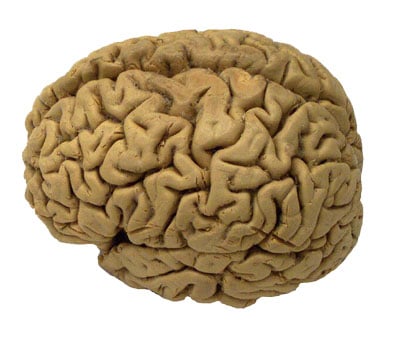 Personal Care-giving Tips for Those Who Give Care to Loved Ones with Dementias/Alzheimers
Personal Care-giving Tips for Those Who Give Care to Loved Ones with Dementias/Alzheimers
by Carol Ware Duff MSN, BA, RN
Grooming is an important part of daily life because it involves hair and nail care, make-up, and shaving.
What are some of the reasons that grooming can be difficult for the person with dementias/Alzheimers?
-
Your loved one may forget about grooming.
-
There can be a loss of understanding of how to use a hairbrush, razor, or other grooming items.
-
There may be an inability to recognize body parts. For example; “What is hair, where is it, what do I do with the hairbrush?”
-
Lack of privacy, poor lighting, and distractions from other people and noise may increase problems with grooming. Your loved one may become more confused and possibly agitated.
What can you do to help with grooming?
-
Encourage your loved one to do as much of his or her grooming activities as possible.
-
Use the same routine for grooming every day and allow enough time.
-
Lay out grooming supplies in advance and in the same place, where your loved one can easily see them.
Remember:
-
Hair and nail care, shaving, and make-up are important to help your loved one feel better about him or herself and his or her appearance.
-
Praise and encouragement is very important to promote usual routines and self-confidence.
-
A final look in a mirror will allow your loved one see how good/attractive he or she looks.
Hair Care:
-
Hair can be cut into an attractive, perhaps shorter style that is easier to wash and dry.
-
If your loved one still enjoys visits to the beauty shop or barbershop, take him or her.
-
If your loved one is homebound, some beauticians and barbers will come to the home to offer services and some are skilled at working with people with dementia.
-
Washing hair at the kitchen sink with a sprayer may be easier for you, but be careful of the potential for slip and fall injuries.
-
Hair washing can also be done in the tub with a sprayer and hose attachment or in the shower.
-
Always rinse all soap out of the hair to avoid scalp irritation.
-
Use tear free/tangle free shampoo.
Nails:
-
Trim finger and toe nails after a shower or bath, while the nails are softer.
-
Pay special attention to toe nails so that they do not become too long and make wearing shoes uncomfortable or cut into the flesh of the feet.
-
Consider professional nail care as an option for both finger and toe nails.
-
If your loved one is a woman, she may enjoy having her nails polished.
Make-Up:
Women may still enjoy wearing make-up, particularly when going out or having visitors.
-
Think about your loved one’s habits of wearing make-up and try to continue this.
-
You can apply simple make-up, such as lipstick. I
-
f you are uncomfortable doing make-up help, you can seek help by asking a female family member, friends, or relatives.
Shaving:
Daily shaving for the man, who has always been clean-shaven, gives the appearance of caring about himself. Your loved one may need help with this activity at the early stage of the disease.
-
An electric razor is the safest to use.
-
You may have never shaved anyone before but you can get help and instruction from a male relative, friend, or neighbor.
-
Shaving is often abrasive to the skin. After-shave lotions may be applied.
The following are some websites to provide you with more information about grooming.
AlzOnline: Caregiver Compass Reading Room, http://alzonline.phhp.ufl.edu/en/topics
National Alzheimer’s Association. Personal care. http://www.alz.org/national/documents/brochure_personalcare.pdf
WebMD: Caring for your loved one’s personal needs. http://www.webmd.com/alzheimers/guide/caring-loved- ones
References:
AlzOnline: Caregiver Compass Reading Room. Personal care. Retrieved April 30, 2008 from http://alzonline.phhp.ufl.edu/en/topics
Boyd, M. (2002). Psychiatric nursing: Contemporary practice (2nd edition). Philadelphia, PA: Lippincott.
Ignatavicius, D., & Workman, M. (2006). Medical-surgical nursing:Critical thinking for collaborative care (5th edition). St.Louis, MO: Elsevier Saunders.
Lewis, S., Heitkemper, M., & Dirksen, S. (2004). Medical-surgical nursing: Assessment and management of clinical problems (6th edition). St. Louis, MO: Mosby.
Mace, N., & Rabins, P. (2006). The 36-hour day: A family guide to caring for people with Alzheimer disease, other dementias, and memory loss in later life (4th edition). Baltimore, MD: The Johns Hopkins University Press.
Robinson, A., Spencer, B., & White, L. (2007). Understanding difficult behaviors: Some practical suggestions for coping with Alzheimer’s disease and related illnesses. Ypsilanti, MI: Eastern Michigan University.

Carol graduated from Riverside White Cross School of Nursing in Columbus, Ohio and received her diploma as a registered nurse. She attended Bowling Green State University where she received a Bachelor of Arts Degree in History and Literature. She attended the University of Toledo, College of Nursing, and received a Master’s of Nursing Science Degree as an Educator.
She has traveled extensively, is a photographer, and writes on medical issues. Carol has three children RJ, Katherine, and Stephen – one daughter-in-law; Katie – two granddaughters; Isabella Marianna and Zoe Olivia – and one grandson, Alexander Paul. She also shares her life with her husband Gordon Duff, many cats, and two rescues.
ATTENTION READERS
We See The World From All Sides and Want YOU To Be Fully InformedIn fact, intentional disinformation is a disgraceful scourge in media today. So to assuage any possible errant incorrect information posted herein, we strongly encourage you to seek corroboration from other non-VT sources before forming an educated opinion.
About VT - Policies & Disclosures - Comment Policy




